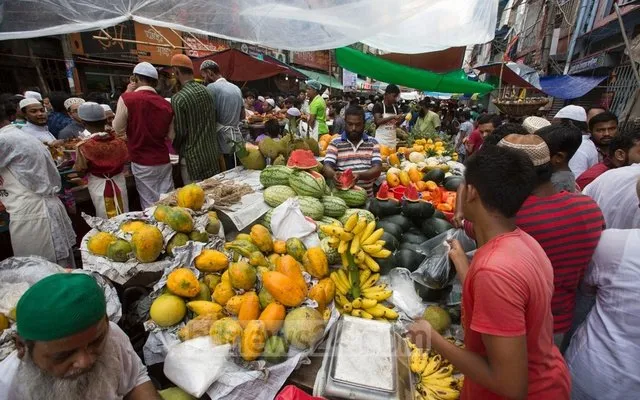Not only for celebrating religious rites, fasting is good for health. As well as healthy eating habits will keep the body healthy.

source- uc browser.com
The benefits of fasting and balanced eating habits are explained by chief hospital nutritionist Chowdhury Tasnim Hasin.
Fasting is a very healthy way of fasting during Ramadan through balanced eating habits. Celebrate fast
- Blood cholesterol keeps control. * Controls the level of blood sugar. * Helps control blood pressure. * By removing the body's contaminated substances, our body fat is destroyed during the fasting of the toxic material stored in our body. * Fasting reduces our oxidative stress. * Prevent DNA damage. * Helps in cure intestinal and food problems.
Fasting is very important for overall mental health.
The kind of foods that should be excluded from fasting should be avoided
Extra oil-fried and spicy foods; Which prevents our digestive action.
Extra sweetened foods that increase insulin levels in our body.
Daily dietary beneficial for the body
Sehri and iftar are quite nutritious and measurable
Prepare a balanced dietlet in combination with protein, sugar, fat, vitamins and mineral.
Seehri and Iftar should include complex foods and fiber foods such as dates, nuts, scallops, vegetables etc. These foods help to meet the long-term needs of calories in digestion.
To prevent water pollution in the daily life
To drink 8 to 12 glasses of water per day, weight and height from iftar to seafarer.
Some special techniques can be used to prevent water scarcity.
Do not drink extra tea and coffee in Saheri, which acts as a diuretic in our body and increases the demand for water.
Excess saline foods should be excluded. Which will help in preventing water scarcity
Include reheating mineral or 'k plus' (K +) meal in Sehri and Iftar. Which will play an important role in reducing water shortage. For example, dates, mango, banana etc.
Nutritional quality of the traditional iftar
There are some differences in our diet during Ramadan in the social context. Some of the traditional iftar varieties include pomegranate, pulse gram, violet, halim, date, dill-chira, sharbat etc.
In this case, additional oil-fried foods must be omitted. Which is harmful for health. However, there are some nutrients of this traditional iftar, for example-
Grunting: It's a nutritious meal. Especially fasting. About 150 grams of calories contain about 150 kilos of calories. Here we get about 40 percent of our daily dietary needs. It also has plenty of protein and mineral.
Date: Sehiri and iftar are two very nutritious meals a date. It has a very nice combination of glucose and fructose.
That is, we get very fast from one part of the date palm, and some parts gradually give strength to our body for a long time. As a result, enough nutritious for Sehari. Besides, there are a lot of 'K Plus' which helps in preventing our emissions.
Yogurt: It is a nutritious and delicate food every day. There is a beautiful combination of proteins and carbohydrates.
Many of us have different types of digestion problems due to different dietary habits. Iftar, iftar, helps keep our digestion process healthy.
There is a probiotic that is beneficial for our intestines and diets. Helps keep bacteria fresh, which is very important in everyday life. More trans fat, carbohydrate, plenty of vitamins and calcium